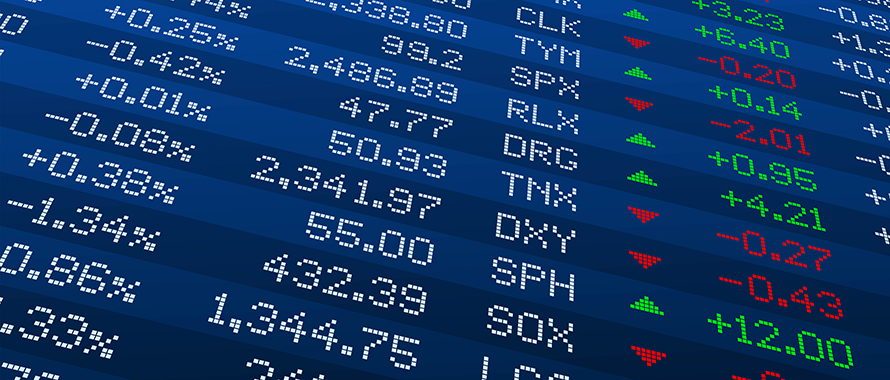The online and app-based stock trading broker Robinhood is facing at least 34 class-action lawsuits over its decision to prevent purchases of shares in GameStop and several other so-called “meme stocks” like AMC Entertainment and BlackBerry at the end of last month. The temporary halt on purchasing certain stocks came after amateur traders stunned Wall Street with a coordinated effort to drive up the price of shares in struggling companies, causing massive losses1 for the hedge funds that shorted those companies’ stocks.
The lawsuits allege Robinhood’s restrictions, which drew widespread criticism and calls for congressional investigations,2 deprived retail investors of the opportunity to buy stock. Some complaints name other trading platforms3 and trading firms as defendants, alleging they all engaged in a conspiracy and violated antitrust laws by preventing purchases. Other suits name financial services companies and hedge funds as defendants,4 in addition to Robinhood.
Robinhood, a California-based firm known for commission-free trading, has maintained it has the right to stop stock buys without notice and was forced to impose restrictions because it was running out of cash to cover the transactions, as it is required to do by law.5
Some experts argue that Robinhood’s user agreement and Section 230 of the federal Communications Decency Act of 1996 likely shield the brokerage app from legal liability;6 nevertheless, the company will expend considerable time and resources defending the sudden barrage of lawsuits, said Marvin Cigarroa, Broker, Professional Liability, Burns & Wilcox, San Diego, California.
“Defense costs can be sizeable, regardless of the actual merits of the allegations,” he said. Companies named in the spate of lawsuits are no doubt investigating how their Directors & Officers (D&O) Insurance policies will help to mitigate their expenses, Cigarroa predicted. “If there are no specific exclusions then, at the very least, their insurance carriers could begin to provide coverage for defense costs related to these class actions.”

Robinhood is a private company under a great deal of scrutiny as it gets closer to going public. Any company in a similar position really needs to make sure that it has adequate D&O Insurance with appropriate coverage limits.
D&O Insurance is a type of Management Liability Insurance that provides coverage for expenses incurred by a company’s directors and officers, and in some cases the entity itself, in the event they are named in a lawsuit. Covered expenses include defense costs and settlement awards.
“Robinhood is a private company under a great deal of scrutiny as it gets closer to going public,” said Heather Schaaf, Associate Vice President, Professional Liability, Atain Insurance Companies, Chicago, Illinois. “Any company in a similar position really needs to make sure that it has adequate D&O Insurance with appropriate coverage limits.”
Investors at risk when controversy strikes
According to statements from Robinhood’s co-founder and co-CEO Vlad Tenev, trading restrictions were implemented on January 28 after a securities clearinghouse asked the brokerage for $3 billion to back up trades in GameStop and other stocks targeted by members of the Reddit group r/wallstreetbets.7
Citing Robinhood’s strength in the growing retail trading marketplace and ability to add hundreds of thousands of users amid controversy and Congressional scrutiny, investors provided Robinhood with over $3 billion in emergency funding to meet its regulatory obligation.8 Such investment decisions could prove risky, Schaaf said, as investors could be on a company’s board and named in lawsuits.
“It is common for all those in senior management positions to be named in lawsuits,” she said, noting that company officers may opt to invest in Individual Directors Liability Insurance to protect themselves from actions that impact boards on which they serve. Financial service companies may also choose a form of coverage known as a Fidelity FI (Financial Institution) Bond, which helps with costs in the event a company is determined to have engaged in fraudulent trading practices, Schaaf said.
A hedge fund or venture capital firm could imperil itself by investing in a company with an uncertain future, Cigarroa said. “If a company experiences a significant negative event, its institutional investors face potential losses,” Cigarroa said. “When that happens, hedge funds and venture capital firms face questions from their investors. It is a domino effect.”
This is why investment companies need their own D&O Insurance. “Assisting with costs in those situations is what a D&O Insurance policy is designed to do,” he said.
Defense costs, settlements on the rise
According to Bloomberg Law, the cost of class-action lawsuits has been on the rise for the last four years. In 2019, U.S. companies spent about $2.5 billion defending class actions.9 “Defense attorney fees for these cases are considerable,” Cigarroa said. “Even cases with a seemingly clear-cut defense and low likelihood of settlement carry defense cost exposure, so having a D&O Insurance policy to mitigate those costs is crucial.”
Settlement costs are also rising, in part due to social inflation,10 according to Schaaf. Last September, for example, Blue Cross settled a $2.7 billion federal lawsuit brought by customers, who alleged the association deliberately prevented its individual plans from competing with each other.11
“Social inflation brings more sympathy for plaintiffs,” Schaff explained, especially in cases that draw David and Goliath comparisons. “Costs of defense have risen sharply due to escalating attorney fees and these kinds of lawsuits require specialized attorney panels. It is time-intensive to comb through records and put together a defense.”
Private companies vulnerable to D&O lawsuits
Although D&O lawsuits are often associated with public companies, private firms can be just as vulnerable.
Indeed, Robinhood has faced legal trouble in the past. In December, the company agreed to pay $65 million to settle U.S. Securities and Exchange Commission charges that it misled customers about revenue sources and failed to meet its duty to seek the best terms for its users.12 More recently, on February 8, a wrongful death lawsuit against the company was announced, filed by the family of a 20-year-old trader who allegedly committed suicide because he mistakenly believed he owed $730,165 after seeing a negative balance in his Robinhood account.13
“The high-profile cases that make headlines often involve publicly-traded companies,” Cigarroa said. “That fuels a widespread belief that privately-held companies are at low risk for D&O lawsuits. The Robinhood case illustrates clearly that this is a misconception.”
D&O Insurance for publicly-traded companies generally does not include coverage for defense costs incurred by the entity itself, except in the case of a shareholder lawsuit. For privately-held companies, however, D&O Insurance does extend coverage to the entity for legal expenses, Cigarroa said. Antitrust lawsuit expenses are typically included in D&O Insurance coverage for private companies, unless there is a specific antitrust exclusion noted in the policy.
D&O Insurance policies can include coverage for costs stemming from a variety of lawsuits filed against privately-held companies — not only shareholder lawsuits, but also those filed by customers, vendors or regulators. Nevertheless, regulatory and antitrust exclusions are possible and company leaders should be sure their relevant D&O Insurance policy limits are sufficient.
“Companies should verify their D&O Insurance coverage includes sufficient limits under Side A, which covers costs related to directors and officers a company does not indemnify,” Schaaf said. “It is imperative to avoid a situation in which expenses from a lawsuit against an entity eat up a coverage limit, leaving directors and officers without assistance for their personal defense costs.”
As of February 3, Robinhood was moving forward with a planned initial public offering.14 The current controversy surrounding the brokerage company has the potential to delay its filing and reduce its initial stock valuation. Such circumstances can also impact a company’s D&O Insurance.
“The D&O Insurance market is tough right now,” said Cigarroa. “For D&O Insurance underwriters, controversies and legal challenges can raise red flags.”

Companies should have a D&O Insurance policy in place with appropriate coverage tailored to meet their individual needs. In addition, they must proactively examine their management and procedures and prepare for various financial or operational situations.
Establishing crisis procedures is one way that companies can try to mitigate their risks from D&O lawsuits, Cigarroa added. “Having policies and procedures in place to guide responses to various crises can make a big difference,” he said.
Schaaf agreed: “Companies should have a D&O Insurance policy in place with appropriate coverage tailored to meet their individual needs,” she said. “In addition, they must proactively examine their management and procedures and prepare for various financial or operational situations.”
Sources
1 Wieczner, Jen. “Hedge funds and other short-sellers have lost an astounding amount betting against GameStop.” Fortune, January 29, 2021. 2 Matthews, Chris. “Lawmakers demand action on GameStop saga, Robinhood ban.” MarketWatch, January 28, 2021. 3 Tabacco, Christina. “Robinhood and TD Ameritrade Retail Investors Accuse the Trading Platforms of Antitrust Conspiracy.” Law Street, January 29, 2021. 4 Waddell, Melanie. “Schwab, TD Ameritrade, Interactive Brokers Sued Over Trading Restrictions.” ThinkAdvisor, January 29, 2021. 5 Robinhood, “What happened this week.” Blog post, January 29, 2021. 6 Hals, Tom. “Analysis: Robinhood and Reddit protected from lawsuits by user agreement, Congress.” Reuters, January 30, 2021. 7 Browne, Ryan. “Robinhood CEO explains to Elon Musk why his platform restricted trading last week,” CNBC, February 1, 2021. 8 Rooney, Kate. “Why investors were willing to write Robinhood a $3 billion check during the GameStop chaos.” CNBC, February 3, 2021. 9 Thomas McCabe, Julianna. “INSIGHT: Companies Battle Rising Class Action Costs With Aggressive Management.” Bloomberg Law, May 29, 2019. 10 Demos, Telis. “The Specter of Social Inflation Haunts Insurers.” The Wall Street Journal, December 27, 2019. 11 Abelson, Reed. “Blue Cross Insurers Reach Tentative Settlement in Antitrust Lawsuit.” The New York Times, September 24, 2020. 12 U.S. Securities and Exchange Commission. “SEC Charges Robinhood Financial With Misleading Customers About Revenue Sources and Failing to Satisfy Duty of Best Execution.” United States Government, December 17, 2020. 13 Fitzgerald, Maggie. “Robinhood sued by family of 20-year-old trader who killed himself after believing he racked up huge losses.” CNBC, February 8, 2021. 14 PYMNTS. “Robinhood Marches On With IPO Despite GameStop Trading Debacle.” PYMNTS.com, February 3, 2021.





